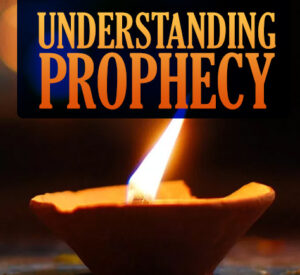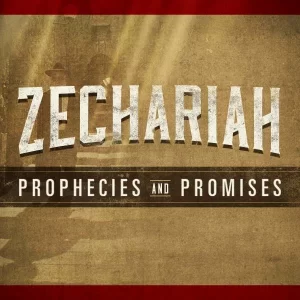Isaac – the Odyssey Life
Isaac’s odyssey life was much like that of legendary movie figure Forrest Gump – Isaac was part of several Biblical historical events, but not the focus of the stories. Still, he is mentioned in the middle of the common Scriptural phrase, “the God of Abraham, Isaac and Jacob.”[1]
Abraham, the father of Isaac, is the patriarch of Judaism, Islam and Christianity having been blessed by God to be the father of many nations and kings.[2] Jacob, Isaac’s son, had his name changed by God to Israel and became the father of the 12 tribes of Israel.[3] Isaac’s life fell between these two iconic Biblical figures without the same high profile recognition.
Sarai, Abram’s Hebrew wife, came to think she was barren and suggested that Abram use their servant Hagar, an Egyptian, to produce a baby. Abram married Hagar and they had a child whom they named Ishmael according to a message from an angel.
Animosity with Hagar compelled Sarah to press Abraham to remove Hagar and Ishmael, from the picture. Although he loved Ishmael very much, Abraham blessed him and sent him away with Hagar.[4] Ismael went on to become the patriarch of the Muslim world.[5]
Thirteen years after Ishmael was born, God appeared to Abraham with an amazing message.[6] Not only was Abraham promised to be the father of nations and kings, God changed the names of both him and his wife – Abram to Abraham and Sarah and Sarai – and promised they would miraculously become parents of a boy in their old age, a son whom God named Isaac.[7] At the age of 90 Sarah gave birth to Isaac, her only child, when Abraham was 99 years old.[8]

Abraham’s faith was tested by God placing Isaac’s life at great risk as a youth. Unbeknownst to Isaac, God commanded Abraham to sacrifice his only son on a Moriah mount. Human sacrifices were not uncommon in that era, such as to the pagan gods Baal and Moloch.[9]
Carrying the wood for the sacrifice, Isaac suspected something wasn’t right and pointed it out to his father – they didn’t have an animal to sacrifice.[10] “God will provide for Himself the lamb for the burnt offering,” Abraham told Isaac.[11]
Drama peaked at the final moment when Isaac was ready to be slain on the sacrificial alter. An “angel” stopped Abraham from killing his only son and instead provided a ram entangled in a nearby thicket for the substitute sacrifice.[12] Known in Judaism as “The Binding of Isaac,” the event is also mentioned in the New Testament Book of Hebrews as an example of faith.[13]
Mount Moriah from that point forward would become the centerpoint location of holiness to God. Hundreds of years later, King David would purchase the land, personally offer a sacrifice, then announced that very place on Mount Moriah would be the location of the Temple eventually built by King David’s son, Solomon.[14]
Isaac’s marriage to Rebekah was much less of a remarkable occasion than the significant events preceding and surrounding it. The multifaceted story involved the miraculous revelation of a bride for Isaac; established a traditional Jewish marriage right; and emphasized God’s value of virginity.
At the age of marriage, Abraham sent his servant back in his homeland with instructions to find a bride for Isaac among “the daughters of the Canaanites.“[15] The servant prayed for a specific sign so complex and unusual, when it happened it would leave no doubt Rebekah was the chosen one for Isaac.
Rebekah was the first of only three females in the Bible described by the rare Hebrew words, ha-almah, “the virgin.” The Genesis story serves as the codex for defining the Hebrew word meanings for ha-almah (the virgin), betulah (virgin), na ‘arah (girl) and `ishshah (woman).[16] Second of the appearance of ha-almah in the Bible was in reference to Miriam, the sister and savior of Moses and the third time is the prophecy of Isaiah 7:14 foretelling the birth of a son to ha-almah.[17]
To escape a famine, Isaac moved his family to Philistine territory. Rebekah was very beautiful, so much so, that Isaac feared someone might kill him to steal his wife. As a safeguard, the couple lived under the pretense that Rebekah was his sister.[18] While in the land of the Philistines, God appeared to Isaac warning him not to go to Egypt, then blessed him: [19]
Gen 26:3-5 “Dwell in this land, and I will be with you and bless you; for to you and your descendants I give all these lands, and I will perform the oath which I swore to Abraham your father. And I will make your descendants multiply as the stars of heaven; I will give to your descendants all these lands; and in your seed all the nations of the earth shall be blessed; because Abraham obeyed My voice and kept My charge, My commandments, My statutes, and My laws.”(NKJV)
One day Philistine King Abimelech saw Isaac caressing Rebekah and realized that she was married to Isaac. After confronting Isaac for his deception, Isaac expressed his fear that someone might kill him to steal his wife. In response, the King issued a command that no one was to touch the couple under the penalty of death.[20]
Prayers of Isaac and Rebekah to give them children after 20 years of marriage were answered with the birth of paternal twins, Esau the older and Jacob the younger.[21] Not only was their appearance vastly different, so was their personality and interests. The twins were a handful for their parents even in their sons’ adult years and the repercussions would manifest themselves many years later.
In his old age, Isaac announced to Esau the time had come for his firstborn blessing and sent him on a hunting trip to get meat for the occasion. Rebekah overheard the conversation and quickly went to Jacob with a plan to swindle the blessing from Isaac. Skeptical at first, Jacob went along with the plan where he used sheep skin to fool his blind father who felt and smelled the imposter pelt believing the earthy scent to be that of Esau.[22]
Having received the blessing of God given to his father Abraham where “all the nations of the earth shall be blessed,” Isaac unwittingly blessed Jacob instead of Esau. In doing so, Isaac passed along God’s blessings of his father to Jacob. Esau soon returned from hunting and became enraged when he learned what had happened and wanted to kill his twin brother, but Rebekah had tipped off Jacob who fled the country.
After the account of Isaac’s blessing, the next 7 chapters in Genesis focuses on the life of Jacob. Briefly mentioning the end of Isaac’s life, Genesis records that Isaac lived a full life until the ripe old age of 180 years.[23] Isaac and Ishmael would meet again when they buried their father thus bringing to an end the odyssey life of Isaac.[24]
Could any Messiah prophesy to Abraham legitimately be fulfilled without the blessed life of Isaac?
Updated August 29, 2023.
This work is licensed under a Creative Commons Attribution-NonCommercial-NoDerivatives 4.0 International License.
REFERENCES:
[1] NetBible.org. Word search for “Abraham, Isaac, Jacob.” 2020. <http://classic.net.bible.org/search.php?search=god%20of%20abraham%20Isaac%20jacob&page=1>
[2] Genesis 17:5-8.
[3] Genesis 32 :28, 35 :10. Qur’an Surah 3:84, 4:163, 12:38,19:58, 38:45. Pratt, John P. “Divine Calendars Testify of Abraham, Isaac, and Jacob.” JohnPratt.com. 2003. <http://www.johnpratt.com/items/docs/lds/meridian/2003/abraham.html>
[4] Genesis 17-18, 21.
[5] Genesis 17-18.
[6] Genesis 21:1-8.
[7] Genesis 21:8-20.
[8] Qur’an Surah 2:127-128, 133.
[9] “Human Sacrifices.” Bible-history.com. n.d. <http://www.bible-history.com/backd2/human_sacrifice.html> Hefner, Alan G. “Baal.” Encyclopedia Mythica. 2004. <https://web.archive.org/web/20140822080410/http://www.pantheon.org/articles/b/baal.html> “Sacrifice.” Jewish Encyclopedia. 2011. <http://www.jewishencyclopedia.com/articles/12984-sacrifice>
[10] Genesis 22:7.
[11] ESV, NASB, NKJV, NET.
[12] Hebrews 11:17-19. “The Binding of Isaac.” MyJewishLearning.com. 2020. <https://www.myjewishlearning.com/article/the-binding-of-isaac>
[13] Shuchat, Chaya. Smithsonian Magazine. “Ibex Mountain Goat seen while touring the Negev Desert in Israel.” Aug. 2015. <https://photocontest.smithsonianmag.com/photocontest/detail/ibex-mountain-goat-seen-while-touring-the-negev-desert-in-israel>
[14] I Chronicles 21:18, 2 Chronicles 3:1, 2 Samuel 24:15-25.
[15] Genesis 24:7-8, 57-58.
[16] Genesis 24:16-44.
[17] Exodus 2:8.
[18] Genesis 25:21, 27, 29-34;
[19] Genesis 26:1-7.
[20] Genesis 26:8-10.
[21] CR Genesis 17:21, 25:11, 26:3-5, 24, 35:12; 1 Chronicles 16:16.
[22] Genesis 27. CR Genesis 35:10, 16-20, 48:7. “The Story of Abraham.” The History of Israel. n.d. <https://web.archive.org/web/20190827032818/http://www.israel-a-history-of.com/story-of-abraham.html> Pratt. “Divine Calendars Testify of Abraham, Isaac, and Jacob.”
[23] Genesis 35:28.
[24] Genesis 25:9.


